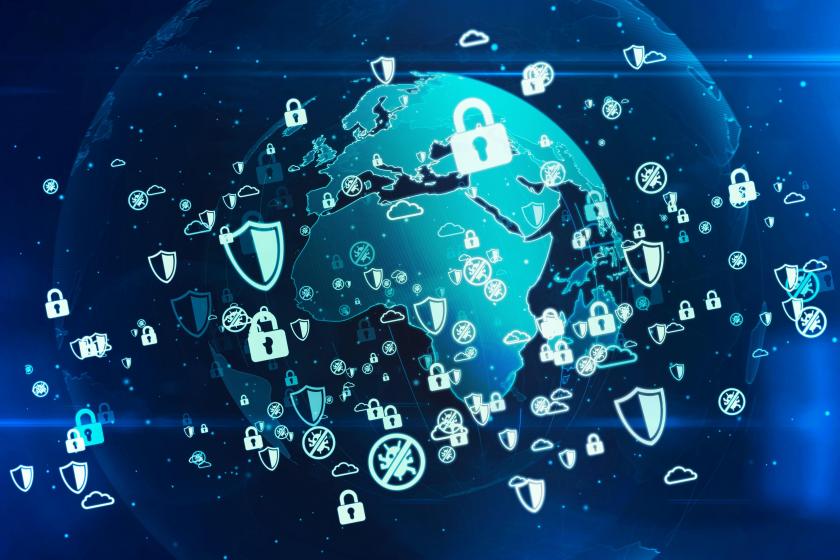5 Takeaways from the Fortinet Security Summit5 Takeaways from the Fortinet Security Summit
The recent Fortinet security summit highlighted emerging trends such as the growing role of AI in cyber security, the melding of networking and security, and more. .
September 28, 2023

Earlier this month, security vendor Fortinet held a security summit that preceded the Fortinet Championship PGA golf tournament in Napa Valley. The event was much more intimate than its annual Accelerate user conference, with the audience comprised of strategic channel partners and top-tier customers. This proved to be an excellent venue for someone like me to talk to key Fortinet stakeholders about the company, its vision, and its products. Below are my thoughts on the event.
1) Platform is the way forward for security. Consolidation and convergence have been key topics in cyber security for years, but typically at a product level. Next-generation firewalls (NGFW), application delivery controllers (ADCs), and network devices have subsumed different security capabilities to make deployment easier. The concept of a security platform changes the narrative regarding consolidation as it shifts the value proposition from deployment to improving operations. I talked to many Fortinet customers who were able to automate more capabilities and find threats faster while reducing headcount. In reality, I do not see a day where customers consolidate down to one single platform but rather 3-5 to address their various needs. That’s a significant improvement from the 70+ security vendors in large enterprises today.
2) Artificial intelligence (AI) is the next big change agent in security. Every event I have attended this year has had a heavy dose of AI, and the Fortinet Security Summit was no different. The shift to a security platform gives the customer a massive amount of data to analyze and see things that could find threats faster, identify possible attack areas, or even predict a breach. The challenge is that even the most seasoned security professionals can’t analyze the information fast enough to make it actionable – but machines can. AI will redefine security but does require the platform approach. During the executive Q&A, Fortinet CTO John Maddison mentioned he could see a day when the natural language interface, enabled by generative AI, is the primary one used by security operations.
3) Fortinet’s silicon is its secret sauce. Whenever I talk to customers about why they chose Fortinet, the cost comes up. The company has had the industry's best price–performance for years, to the point where the price sometimes seems too low. In past analyst summits, I’ve heard analysts ask Fortinet management why they don’t raise prices, but the company has maintained a price it feels is fair while it makes a healthy margin. Despite the below-industry average pricing, its high-end products can massively scale.
One customer I talked to, a university in Texas, told me he switched from Palo Alto Networks to Fortinet because the latter outperformed at a much lower price. Fortinet is the only major security vendor to spin its own silicon, but there's a reason it does. Its FortiSP5 is optimized specifically for security functionality, which makes it much more efficient than a general-purpose processor. In the past, Maddison has used the analogy that people use GPUs for video because it’s a processor specifically designed for graphics. Similarly, the Fortinet SPU is built for security. Also, at volume, ASICs are much lower cost than a high-end CPU, which is how Fortinet can perform so well with lower prices. The other benefit it brings is that it enables a consistent set of features across all its products.
4) Fortinet is a legitimate network vendor. SD-WAN and SASE have pushed security and networking together, creating an opportunity for network vendors to sell security and vice versa, and Fortinet has capitalized on that better than anyone. By making SD-WAN a feature of its FortiGate, Fortinet has taken a significant chunk of the WAN market. Before SD-WAN, FortiGate had routing capabilities, but customers kept those functions separate, limiting the company's opportunities. SD-WAN brought those functions together, and Fortinet has used its presence in the WAN to drive more networking sales, including Wi-Fi, switching, and even VoIP phones.
5) Hardware still matters. The tech industry loves to swing pendulums to absolutes. Everything is moving to the cloud, and everything is going mobile, are statements we have all heard over the past few years. Cloud-enabled SSE has been great for the security industry as it brings corporate-grade security to areas where it could never have been deployed before. However, it's not a panacea to all problems. Hardware at the edge and in the core is still necessary. One of the proof points of this is SSE pioneer Zscaler, introducing its own branch hardware at its most recent user event. The fact is, the cloud solves some problems, as does software as does hardware, and customers need all of them. Every customer of a significant size I talked to at the Security Summit (and other security events) has told me they continue to maintain on-prem hardware, primarily for performance but also for resiliency. Hardware is essential and will be for the foreseeable future.
A final word about the security summit
I certainly enjoyed the golf tournament, and congrats to Sahith Theegala for winning, although I think most people at the event were rooting for two-time champion and Fortinet Brand Ambassador Max Homa. The security summit that preceded the event was equally excellent, as it was great to hear from so many customers and partners how rapidly businesses' security needs are changing.
Zeus Kerravala is the founder and principal analyst with ZK Research.
Read his other Network Computing articles here.
Related articles:
About the Author
You May Also Like




